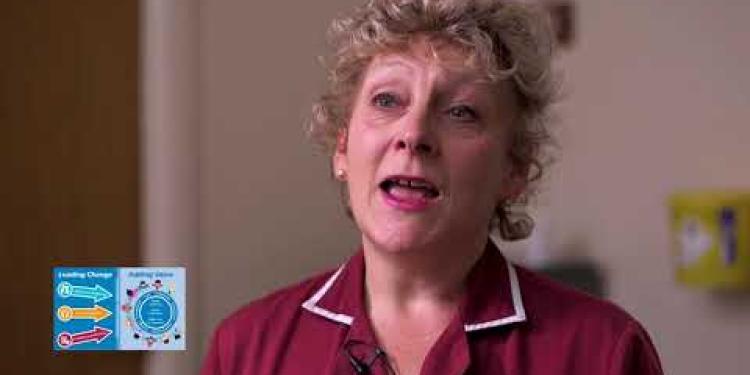Important Information On Using This Service
- Ergsy carefully checks the information in the videos we provide here.
- Videos shown by YouTube after a video has completed have NOT been reviewed by ERGSY.
- To view, click the arrow in the center of the video.
Using Subtitles and Closed Captions
- Most of the videos you find here will have subtitles and/or closed captions available.
- You may need to turn these on and choose your preferred language.
Turn Captions On or Off
- Go to the video you'd like to watch.
- If closed captions (CC) are available, settings will be visible on the bottom right of the video player.
- To turn on captions, click settings.
- To turn off captions, click settings again.
Find A Professional
More Items From Ergsy search
-

Bowel cancer - Symptoms and signs to look out for
Relevance: 100%
-
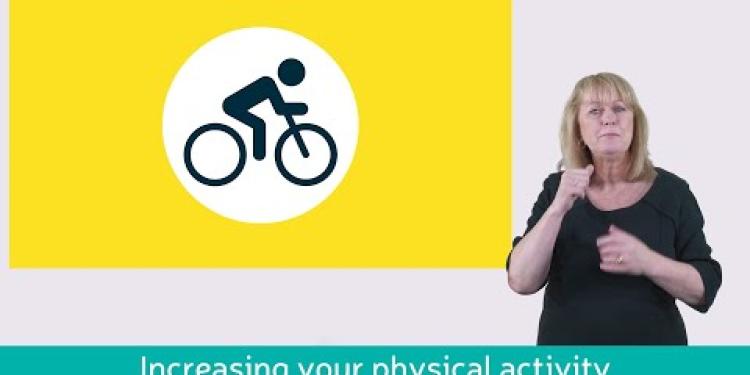
Learn about bowel cancer (British Sign Language version)
Relevance: 79%
-
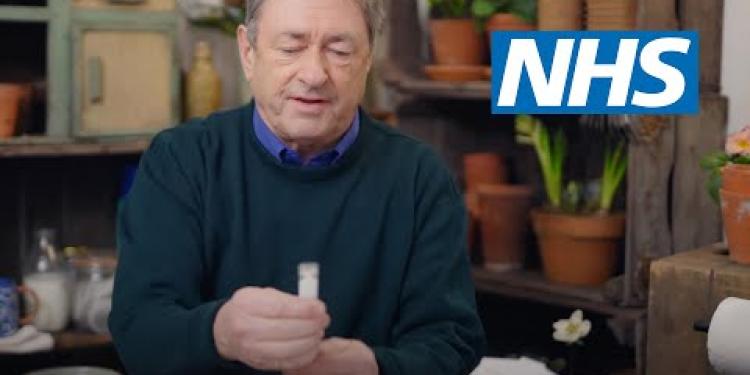
Bowel cancer screening: Alan Titchmarsh and Tommy Walsh | NHS
Relevance: 73%
-

Taking a Genetic Family History - The Conversation (Bowel Cancer)
Relevance: 67%
-

How to do the FIT bowel cancer screening test | Cancer Research UK
Relevance: 61%
-
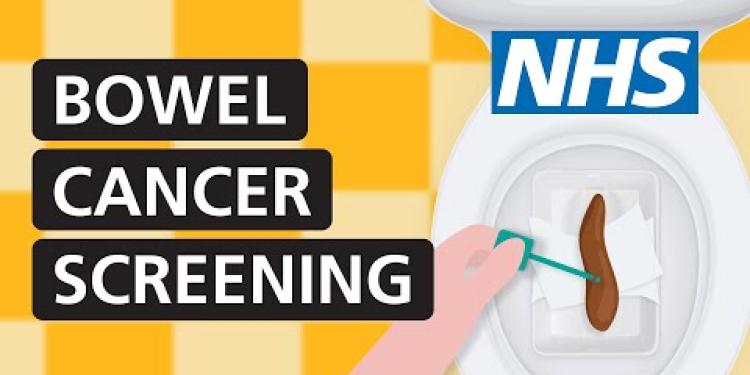
How to use the bowel cancer screening FIT kit | NHS
Relevance: 61%
-

What is Cancer?
Relevance: 57%
-

Ovarian Cancer
Relevance: 56%
-

Treating prostate cancer
Relevance: 55%
-

Endometrial Cancer
Relevance: 54%
-

Don't carry the worry of cancer with you | NHS
Relevance: 53%
-

Breast cancer: testing and treatment | NHS
Relevance: 53%
-

Prostate cancer symptoms - detecting them early
Relevance: 52%
-
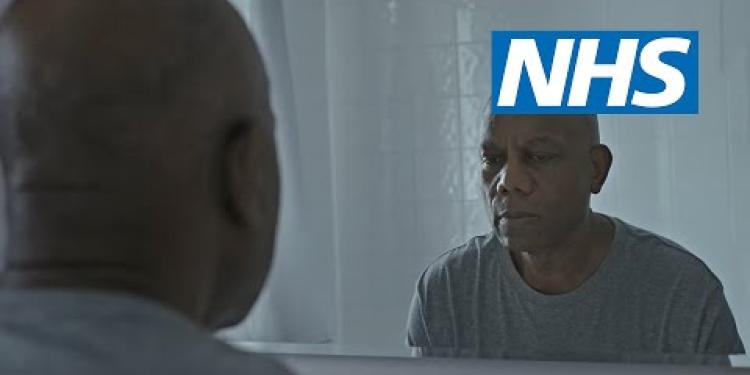
Worried about signs that could be cancer? Contact your GP practice | NHS
Relevance: 51%
-

Why do men get prostate cancer?
Relevance: 50%
-

World Pancreatic Cancer Day - No Time to Wait
Relevance: 50%
-
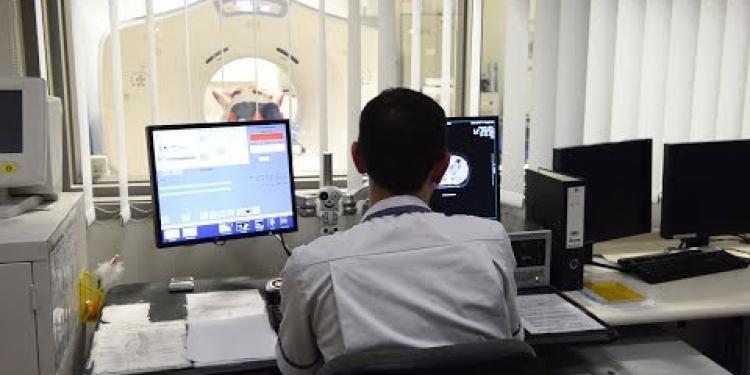
Having radiotherapy for breast cancer - 3 Videos
Relevance: 50%
-
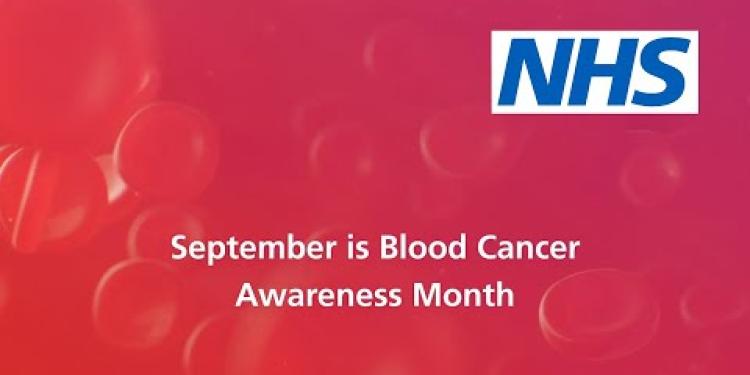
4 facts about blood cancer that you should know | NHS
Relevance: 47%
-
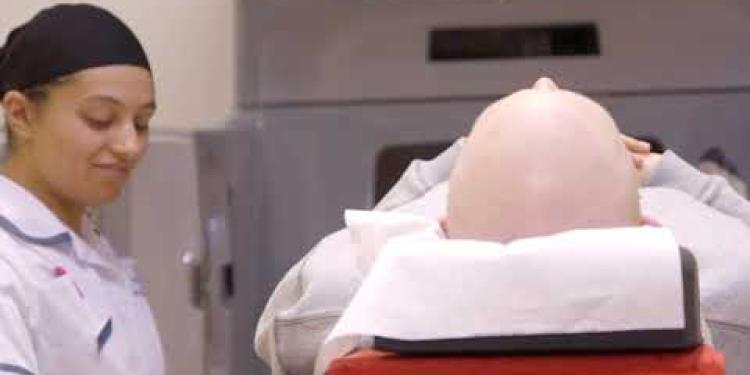
What is Radiotherapy, and its use in treatment for cancers?
Relevance: 47%
-
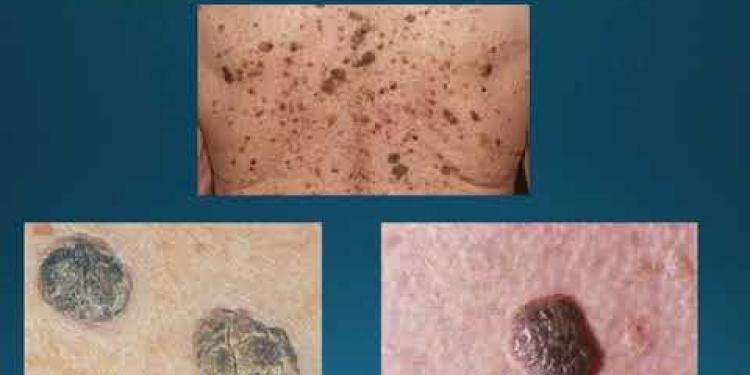
Skin cancer education
Relevance: 47%
-

Prostate cancer diagnosis and tests
Relevance: 46%
-

Head and Neck Cancer Diagnosis
Relevance: 46%
-

What is Prostate Cancer?
Relevance: 45%
-

Genomics I: An overview of genomics in cancer care
Relevance: 44%
-

Vaginal Cancer
Relevance: 43%
-
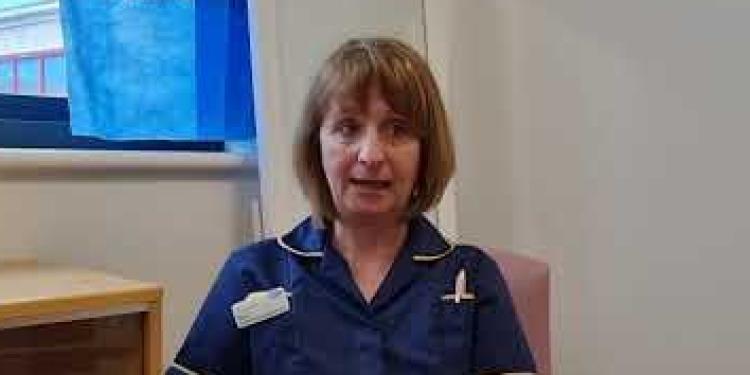
Ovarian cancer - signs and symptoms to look out for
Relevance: 41%
-

Mouth Cancer Awareness
Relevance: 40%
-

Getting to know your Testicles: Testicular Cancer Awareness with Dr James Howarth, Spilsby Surgery
Relevance: 40%
-

Living with prostate cancer
Relevance: 40%
-

Get cancer symptoms checked by your GP | NHS
Relevance: 40%
-

About Breast cancer - signs and symptoms | NHS
Relevance: 39%
-
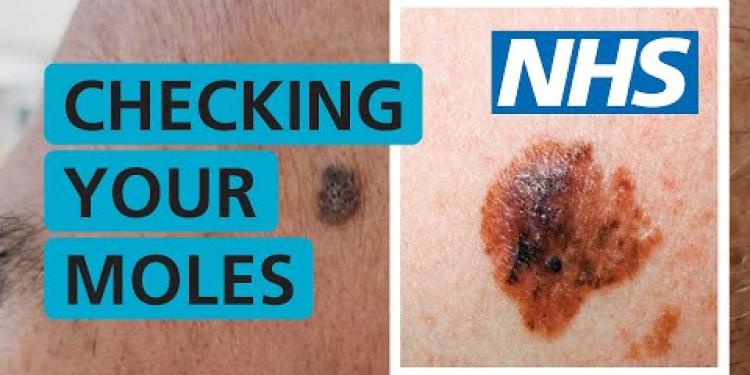
Skin Cancer - How do I check if my mole is skin cancer? | NHS
Relevance: 39%
-

Raising awareness of ovarian cancer
Relevance: 39%
-

Endometrial Cancer
Relevance: 37%
-

Am I more at risk of prostate cancer?
Relevance: 37%
-

Vulval Cancer
Relevance: 35%
-

NHS breast cancer screening
Relevance: 35%
-

Life Insurance Difference between Unit Linked and With Profit Policies
Relevance: 34%
-
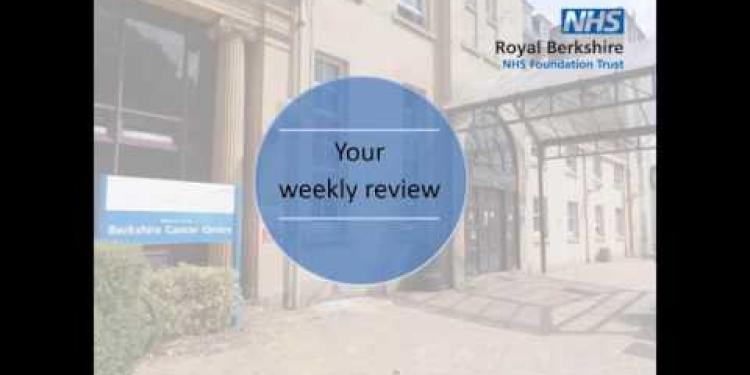
Royal Berkshire NHS Foundation Trust: Radiotherapy for prostate cancer
Relevance: 31%
-

Endometrial Cancer
Relevance: 31%
How to do the FIT Bowel Cancer Screening Test | Cancer Research UK
Introduction to FIT Bowel Cancer Screening
The Faecal Immunochemical Test (FIT) is a crucial tool used in the United Kingdom to screen for bowel cancer. This non-invasive test can detect hidden blood in your stool, which may be an early sign of cancer or other bowel conditions. It’s important to follow the instructions carefully to ensure accurate results.
Getting Your FIT Kit
Once you’re eligible, the NHS Bowel Cancer Screening Programme will send you a FIT kit directly to your home. This typically happens every two years if you’re between 60 and 74 years old. The package includes everything you need to complete the test, including detailed instructions.
Preparing for the Test
You don’t need to make any significant changes to your diet or medications before taking the FIT test. However, it’s advisable to read the provided instructions thoroughly to ensure you understand each step of the process. Make sure you know where to store the kit and how to collect your sample.
Collecting Your Sample
1. Collect your stool sample in a clean, dry container or use the paper sheet provided in your FIT kit.
2. Use the stick provided in the kit to take a small sample from your stool.
3. Apply the stool sample to the test card or place it into the sample bottle as directed.
4. Ensure the sample is sealed correctly to prevent any leaks.
Sending Your Sample
After collecting your sample, place it in the pre-paid envelope provided in your FIT kit. Post it as soon as possible to avoid sample degradation. The envelope is designed to ensure the sample reaches the lab safely and securely.
Receiving Your Results
Results are usually sent within two weeks. You’ll receive a letter explaining your results. If blood is found in your stool, don’t panic. It doesn’t necessarily indicate cancer but might warrant further investigation, such as a colonoscopy.
Understanding Your Results
If no blood is detected, you’ll continue with regular screenings every two years. If blood is present, you’ll be contacted by a specialist nurse to discuss the next steps. Early detection is essential, and the FIT test is a vital preventive measure in the fight against bowel cancer.
Conclusion
Completing the FIT bowel cancer screening test is straightforward and potentially lifesaving. By following the instructions provided and sending your sample promptly, you play a crucial role in early cancer detection and prevention. Cancer Research UK and the NHS are committed to providing the support and information needed to keep you informed and healthy.
How to Do the FIT Bowel Cancer Screening Test | Cancer Research UK
What is FIT Bowel Cancer Screening?
The FIT test checks for bowel cancer. It looks for hidden blood in your poo. This can be an early sign of cancer. If you get the test, it's important to follow the steps to make sure the results are right.
Getting Your FIT Kit
If you are aged 60 to 74, the NHS will send you a test kit in the mail. This happens every two years. Your kit will have everything you need and instructions on what to do.
Preparing for the Test
You don’t need to change what you eat or any medicines. But you should read the instructions in the kit. Make sure you know how to store the kit and how to collect your poo sample.
How to Collect Your Sample
1. Collect your poo in a clean container or use the paper in the kit.
2. Use the stick in the kit to take a small bit of poo.
3. Put the poo on the test card or in the small bottle, as the instructions say.
4. Close it tightly so it doesn’t leak.
Sending Your Sample
Put your sample in the prepaid envelope from your kit. It's best to post it right away. This helps the sample stay okay and reach the lab safely.
Getting Your Results
You'll get your results in about two weeks by mail. If there is blood in your poo, don’t worry. It doesn’t always mean cancer. But you may need more tests, like a colonoscopy.
What Your Results Mean
If your results say no blood, you will do the test again in two years. If there is blood, a nurse will talk to you about what happens next. Finding problems early is very important. The FIT test helps find cancer early.
Conclusion
Doing the FIT test is easy and can save lives. Follow the instructions and send your sample quickly. This helps find cancer early. Cancer Research UK and the NHS want to help you stay informed and healthy.
Frequently Asked Questions
What is the FIT bowel cancer screening test?
The FIT (Faecal Immunochemical Test) is a home testing kit used to detect signs of bowel cancer by finding small amounts of blood in your stool (poo).
Who is eligible for the FIT test?
In the UK, people aged 60 to 74, who are registered with a GP, are automatically sent a FIT kit every two years.
How do I use the FIT test kit?
To use the FIT kit, you need to collect a small sample of your stool using the collection stick, place it in the sample bottle, and then send it back to the lab in the prepaid envelope provided.
Do I need to prepare or change my diet for the FIT test?
No, you do not need to make any changes to your diet or medication before taking the FIT test.
How often should I do the FIT test?
You should do the FIT test every two years if you are between the ages of 60 and 74 and registered with a GP in the UK.
What happens if my FIT test result is positive?
If your FIT test result is positive, it means there is blood in your stool. You will be contacted to discuss the next steps, which usually involve further tests such as a colonoscopy.
What if my FIT test result is negative?
A negative result means that no blood was found in your stool sample. Even if the result is negative, it is still important to continue regular screening every two years.
Is the FIT test painful?
No, the FIT test is not painful. It simply involves collecting a small sample of your stool.
Can I get the FIT kit if I am over 74?
Yes, if you are over 74, you can still request a FIT kit by contacting your GP.
What should I do if I lose my FIT kit?
If you lose your FIT kit, you can contact the bowel cancer screening helpline or your GP to request a new one.
How accurate is the FIT test?
The FIT test is a reliable screening tool, but like all tests, it is not 100% accurate. A negative result does not completely rule out bowel cancer, and a positive result does not mean you have cancer.
Why is bowel cancer screening important?
Bowel cancer screening is important because it can detect cancer at an early stage when treatment is more likely to be successful. It can also find non-cancerous growths, such as polyps, which can be removed to prevent cancer.
Can I take the FIT test while on my period?
It is best to avoid taking the FIT test during your period or if you are experiencing bleeding from hemorrhoids, as this can affect the result.
How long does it take to get the results from the FIT test?
You should receive your results within two weeks of the lab receiving your sample.
What should I do if I am worried about bowel cancer symptoms?
If you are experiencing symptoms such as changes in bowel habits, unexplained weight loss, or abdominal pain, contact your GP even if you've done a FIT test recently.
What is the FIT test for bowel cancer screening?
The FIT test is a medical test that checks for signs of bowel cancer. It is important because it helps find cancer early. The test looks for tiny amounts of blood in your poo. Doing this test can help doctors find problems before they get worse.
To make the test easier to understand, you can use pictures or videos. If you need help, ask someone you trust to explain it to you.
The FIT (Faecal Immunochemical Test) is a test you can do at home. It helps find signs of bowel cancer. It works by looking for tiny bits of blood in your poo.
Who Can Get the FIT Test?
The FIT test looks for blood in your poop. Doctors use it to check for bowel problems.
You can get the FIT test if:
- You are 50 years or older.
- You have no signs of bowel problems.
If you need help, you can:
- Ask a family member or friend.
- Talk to your doctor or nurse.
In the UK, if you are between 60 and 74 years old and have a doctor, you will get a FIT kit in the mail every two years.
How do I use the FIT test kit?
The FIT test is a kit to check your poo for blood. This can help find problems in your tummy.
Here are simple steps to use the FIT test kit:
- Get Ready: Find the kit and open it. You might need the bathroom for this.
- Take a Sample: Use the stick in the kit to take a small bit of your poo. Be careful and gentle.
- Put in Tube: Put the poo sample in the small tube that comes with the kit. Follow the pictures in the kit if you need help.
- Close the Tube: Make sure the tube is closed well so nothing spills.
- Send It Back: Use the box or bag in the kit to send your sample back to the doctor. Follow the instructions in the kit.
If you need help, ask a friend or a nurse.
You can also use pictures or videos if words are hard for you. There might be a helpline number in the kit if you have questions.
To use the FIT kit, follow these simple steps:
1. Collect a tiny bit of your poop with the stick from the kit.
2. Put the poop on the stick into the small bottle.
3. Send the bottle back to the lab. Use the envelope that came with the kit. It is already paid for.
If you need help, ask someone you trust or use voice-to-text tools to have instructions read out loud. Remember, it's okay to ask for help!
Do I need to change what I eat for the FIT test?
When getting ready for the FIT test, you do not need to change what you eat.
You can still eat and drink your normal food and drinks.
If you want help with the test, you can use a calendar to remind you when to do it.
You can also ask a grown-up or friend to help you with the test.
No, you don't need to change what you eat or the medicine you take before doing the FIT test.
How often should I do the FIT test?
You should do the FIT test every year. This test checks if there is blood in your poo. It helps find problems early. Ask a nurse or doctor for help if you are unsure. You can use pictures or videos to understand better. Always ask for help if you need it.
If you are between 60 and 74 years old and have a doctor in the UK, you should do the FIT test every two years.
What does a positive FIT test mean?
If your FIT test is positive, it means blood was found in your poo. It doesn't mean you have cancer, but you might need more tests to check.
What to do? Talk to your doctor. They can help you understand what's next.
Helpful tools: You can use apps that remind you about doctor visits. Also, ask questions if you don't understand.
If your FIT test shows a positive result, it means there is blood in your poop. A doctor or nurse will talk to you about what to do next. This usually means having more tests, like a test called a colonoscopy, to check inside your tummy.
What does a negative FIT test mean?
If your FIT test result is negative, it means no blood was found in your poo. This is usually a good sign.
Helpful Tips:
- Ask questions if you're unsure. A doctor or nurse can help you understand.
- Use pictures or diagrams to understand better. They can show you what the test checks.
- Take your time to read and think about the information.
A negative result means there is no blood in your poop. It is still important to check every two years, even if the result is negative.
Does the FIT test hurt?
No, the FIT test does not hurt. It's a simple test you can do at home.
If you need help, you can ask someone you trust to be with you.
You can also use a timer or a reminder to help you do it.
No, the FIT test does not hurt. You just need to collect a small piece of your poop.
Can I get the FIT kit if I am over 74?
If you are more than 74 years old, you usually do not get the FIT kit in the mail.
But, you can ask your doctor for the FIT kit if you need it. Your doctor can help you get one.
If reading is hard, you can ask family or friends to help. You can also use a dictionary or read out loud to better understand.
If you are older than 74, you can still ask for a FIT kit. Just talk to your doctor to get one.
What to Do If You Lose Your FIT Kit
If you lose your FIT kit, don't worry. Here are some simple steps you can take:
- Call your doctor or nurse and tell them you lost your kit. They can help you get a new one.
- You can also call the place that gave you the kit. They might send you another one.
- Ask someone you trust for help. They can talk to the doctor with you.
Remember, it's important to do the test, so try to get a new kit soon.
If you lose your FIT kit, you can ask for a new one. You can call the bowel cancer helpline or talk to your doctor (GP).
Does the FIT test work well?
The FIT test is a good tool for checking if you might have bowel cancer, but it is not perfect. If your test says "no cancer," you still need to be careful because cancer might be there. If your test says "cancer," it does not mean you definitely have cancer.
Here are some helpful tools and tips to make reading easier:
- Use a ruler or your finger to follow along with the words.
- Read slowly and take your time.
- Ask someone to read with you and explain things.
- Use apps or audiobooks to listen to the text.
Why is it important to check for bowel cancer?
Checking for bowel cancer is very important. It can help find cancer early. This makes it easier to treat.
Getting checked can help you stay healthy. Doctors use special tests to look inside your body. They look for signs of cancer.
If cancer is found early, it can be treated better. This means you have a better chance to get well.
Ask someone you trust to help you understand more.
Using pictures or videos can also help you learn.
Bowel cancer screening is very important. It helps doctors find cancer early, when it is easier to treat. Screening can also find small growths called polyps. Polyps are not cancer, but they can turn into cancer. Doctors can take polyps out to stop cancer from happening.
Can I do the FIT test during my period?
If you have your period, it is best to wait until it is over before doing the FIT test.
Here are some tips to help you:
- Wait until your period is finished.
- Ask a family member or friend for help if needed.
- Use a calendar to plan the best time to do the test.
If you need more help, you can talk to your doctor or nurse.
Don't do the FIT test when you have your period or if you are bleeding from hemorrhoids. It can change the result.
When will I get my FIT test results?
The FIT test checks for signs of illness. After you take the test, you want to know the results. The results tell you if you need to see the doctor.
Usually, you will get your results in one or two weeks. If you do not hear back, you can call the place that did the test.
To remember to check your results, you can:
- Set a reminder on your phone.
- Tell a friend or family member to remind you.
- Write it on a calendar.
If you need help reading the results, ask someone you trust to help explain them to you.
You will get your results in two weeks after the lab gets your sample.
If you find reading hard, use tools like text-to-speech apps or ask someone to help you understand.
What should I do if I am worried about bowel cancer symptoms?
If you are worried about signs of bowel cancer, do these things:
- Talk to a doctor.
- Tell them about any pain or changes in the bathroom.
- Ask someone you trust to go with you.
- Write down your symptoms to help remember.
- Use pictures or videos to learn more about bowel cancer.
If you notice changes in when or how you poop, lose weight without trying, or have a tummy ache, talk to your doctor. It’s important to do this even if you have already taken a FIT test.
Useful Links
Useful links from: Sandwell and West Birmingham Hospitals NHS Trust – Faecal Incontinence and Constipation Healthcare
- Sandwell and West Birmingham Hospitals NHS Trust - Gastroenterology This site provides comprehensive information about the gastroenterology services offered by Sandwell and West Birmingham Hospitals NHS Trust, including diagnosis and treatment of faecal incontinence and constipation.
- NHS - Constipation The NHS official page on constipation, providing detailed information on symptoms, causes, treatments, and when to see a doctor.
- NHS - Bowel Incontinence The NHS official page on bowel (faecal) incontinence, offering information on symptoms, causes, treatments, and advice on managing the condition.
- Bladder & Bowel Community - Bowel Incontinence The Bladder & Bowel Community charity provides support, guides, and resources for individuals dealing with bowel incontinence, including practical management tips and emotional support.
More Videos of Interestdiagnosis
Have you found an error, or do you have a link or some information you would like to share? Please let us know using the form below.
- Ergsy carfully checks the information in the videos we provide here.
- Videos shown by Youtube after a video has completed, have NOT been reviewed by ERGSY.
- To view, click the arrow in centre of video.
- Most of the videos you find here will have subtitles and/or closed captions available.
- You may need to turn these on, and choose your preferred language.
- Go to the video you'd like to watch.
- If closed captions (CC) are available, settings will be visible on the bottom right of the video player.
- To turn on Captions, click settings .
- To turn off Captions, click settings again.
